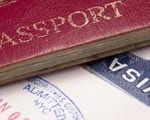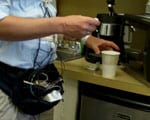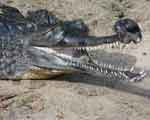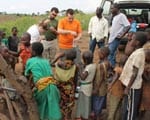The New York-based newspaper India Abroad covered the research of SMU anthropologist Caroline Brettell in an interview with journalist Artthur J. Pais in the March 2 edition.
Brettell has reported that immigrants in North Texas develop their American identity by participating in ethnic community activities, then branching out to broader civic and political life.
She and co-author Deborah Reed-Danahay in their book, “Civic Engagements: The Citizenship Practices of Indian & Vietnamese Immigrants” (Stanford University Press, 2012) found that American Indians and Vietnamese Americans in North Texas develop and embrace their American identity over time — without shedding their culture of origin, as some say they should.
The research found that, for these groups, becoming a U.S. citizen is distinctly different from becoming American, say the immigration experts.
For new Vietnamese and Indian immigrants, whether naturalized citizens or not, American identity deepens as they participate in activities, festivals and banquets at their churches, schools, temples, business and civic associations, and their social and cultural organizations, say Brettell and Reed-Danahay.
From their research, Brettell and Reed-Danahay conclude that policymakers should be cautious with any attempts to integrate, assimilate or incorporate immigrants. They recommend against imposing top-down standards on how citizenship should be expressed — such as requiring full English proficiency or focusing exclusively on formal political participation.
EXCERPT:
Arthur J. Pais
India Abroad
At the height of the 9/11 anti-Muslim violence and sentiments, a mosque serving mostly immigrants in the Dallas-Fort Worth area decided to reach out to the large community and opened a polling station on its premises on an election day.This is one of the many stories you will hear from Professor Caroline B. Brettell whose book Civic Engagements: The Citizenship Practices of Indian and Vietnamese Immigrants (Stanford University Press) co-authored with Professor Deborah Reed Danahay, highlights the growth of community networking that started seriously in the 1990s in the Dallas-Arlington-Fort Worth area of Texas.
“A key contribution of our research is its emphasis on the fact that the civic incorporation of newcomers does not necessarily mean abandoning who you are,” Brettell, an anthropology professor at Southern methodist University in Dallas, says. “Immigrant communities have spaces and places that are already operating as viable arenas for expressing civic and political presence and for becoming American.”
SMU is a nationally ranked private university in Dallas founded 100 years ago. Today, SMU enrolls nearly 11,000 students who benefit from the academic opportunities and international reach of seven degree-granting schools. For more information see www.smu.edu.
SMU has an uplink facility located on campus for live TV, radio, or online interviews. To speak with an SMU expert or book an SMU guest in the studio, call SMU News & Communications at 214-768-7650.

 Study: Nearly two-thirds of EU citizens are marginalized by English-language dominance
Study: Nearly two-thirds of EU citizens are marginalized by English-language dominance From ‘Green Card’ to ‘Thin Blue Line’: Lawtalk research looks at popular legal expressions
From ‘Green Card’ to ‘Thin Blue Line’: Lawtalk research looks at popular legal expressions Public health insurance provides insured infants better, less costly care than private plans
Public health insurance provides insured infants better, less costly care than private plans
 Anthropology study finds that immigrants from India and Vietnam become American over time
Anthropology study finds that immigrants from India and Vietnam become American over time CERN scientists find hints of Higgs boson — “God” particle
CERN scientists find hints of Higgs boson — “God” particle

 Public health insurance provides insured infants better, less costly care than private plans
Public health insurance provides insured infants better, less costly care than private plans A mathematical model determines which nations are more stable and which are more likely to break up
A mathematical model determines which nations are more stable and which are more likely to break up Indian, Vietnamese immigrants become American over time through civic activities, say anthropologists
Indian, Vietnamese immigrants become American over time through civic activities, say anthropologists

 SMU to help solve dangerous refugee water issues
SMU to help solve dangerous refugee water issues Anthropology researcher to study human-fire-climate interactions
Anthropology researcher to study human-fire-climate interactions